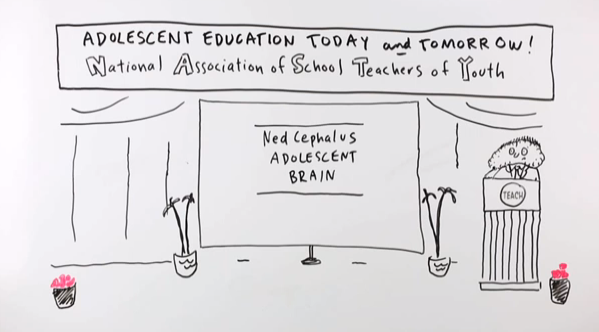Making a Case for Comprehensive Assessment (Exhibition)
Example of an exhibition. project-oriented evaluations that include critiques by outside experts are among the innovations at New York City’s Urban Academy. Editor’s Note: Since this video was filmed in 2001, the Urban Academy has become a member of the New York Performance Assessment Consortium, a coalition of public schools in New York State that uses… Read More ›
The Pedagogy of Poverty Versus Good Teaching
Martin Haberman’s “Pedagogy of Poverty versus Good Teaching” challenges educators to think differently about the “core functions of urban teaching”. An excerpt, “The classroom atmosphere created by constant teacher direction and student compliance seethes with passive resentment that sometimes bubbles up into overt resistance. Teachers burn out because of the emotional and physical energy that… Read More ›
Student-centered learning: What does it mean for students and lecturers?
Research paper by: Geraldine O’Neill and Tim McMahon, University College Dublin The term student-centred learning is widely used in the teaching and learning literature. Many terms have been linked with student-centred learning, such as flexible learning (Taylor 2000), experiential learning (Burnard 1999), self-directed learning and therefore the slightly overused term “student-centred learning” can mean different things to different people. In addition, in practice it is also… Read More ›
Interview with Dayton Teacher
Excerpts from interview with Jolie Ankrom, Spanish teacher, Dayton Early College Academy (DECA) in Ohio | May 26, 2011 “I’m a young teacher, only in my second year of teaching. I don’t think I would be a successful student-centered teacher if I weren’t trained in it. There’s a formal program in Michigan that first year teachers go through…” Access… Read More ›
The International Mind, Brain, and Education Society
The mission of the International Mind, Brain, and Education Society (IMBES) is to facilitate cross-cultural collaboration in biology, education and the cognitive and developmental sciences. Science and practice will benefit from rich, bi-directional interaction. As research contributes to usable knowledge for education, practice can help to define promising research directions and contribute to the refinement of… Read More ›
OECD’s Brain Research Website
OECD’s Centre for Educational Research and Innovation (CERI) – Brain and Learning | Learning Sciences and Brain Research project website The culmination of the Brain and Learning project is the publication “Understanding the Brain: The Birth of a New Learning Science” This enlightening publication is essential reading for all those involved in education as parents, teachers, researchers, policy makers and… Read More ›
Forum for Youth Investment
The Forum for Youth Investment is a nonprofit, nonpartisan “action tank” dedicated to helping communities and the nation make sure all young people are Ready by 21®: ready for college, work and life. Informed by rigorous research and practical experience, the Forum forges innovative ideas, strategies and partners to strengthen solutions for young people and… Read More ›
New Technology High School Website
New Technology High School, is a high school in Napa California. According to the website, “New Technology High School is committed to leading educational reform. Our program encourages students to learn through collaboration with family, business, and community. Students develop the resilience necessary to succeed in a rapidly changing world. Their education at NTHS… Read More ›
MDRC: Transforming the High School Experience
MDRC: Transforming the High School Experience MDRC was created to learn what works in social policy—and to make sure that the evidence we produce informs the design and implementation of policies and programs. Created in 1974 by the Ford Foundation and a group of federal agencies, MDRC is best known for mounting large-scale evaluations of… Read More ›
Pathways to Postsecondary Success
Pathways to Postsecondary Success, a project of UC/ACCORD, is a five-year set of mixed-methods studies focused on maximizing opportunities for low-income youth to earn higher education credentials. With support from the Bill & Melinda Gates Foundation, the project aims to advance research on poverty; produce useful tools that improve educational opportunities and inform the U.S. policy agenda on the relationship between poverty and education.… Read More ›
Universal Design for Learning
National Center on Universal Design for Learning Universal Design for Learning is a set of principles for curriculum development that give all individuals equal opportunities to learn. UDL provides a blueprint for creating instructional goals, methods, materials, and assessments that work for everyone–not a single, one-size-fits-all solution but rather flexible approaches that can be customized and adjusted for… Read More ›
How Youth Learn: Ned’s GR8 8 Video

If you’re a teenage speaker brought in to address a crowd of teachers on the subject of how you and your peers learn best . . . what are you going to say? In this funny and fast-paced “NED talk” produced by What Kids Can Do (WKCD), Ned knocks out eight powerful conditions of learning that… Read More ›